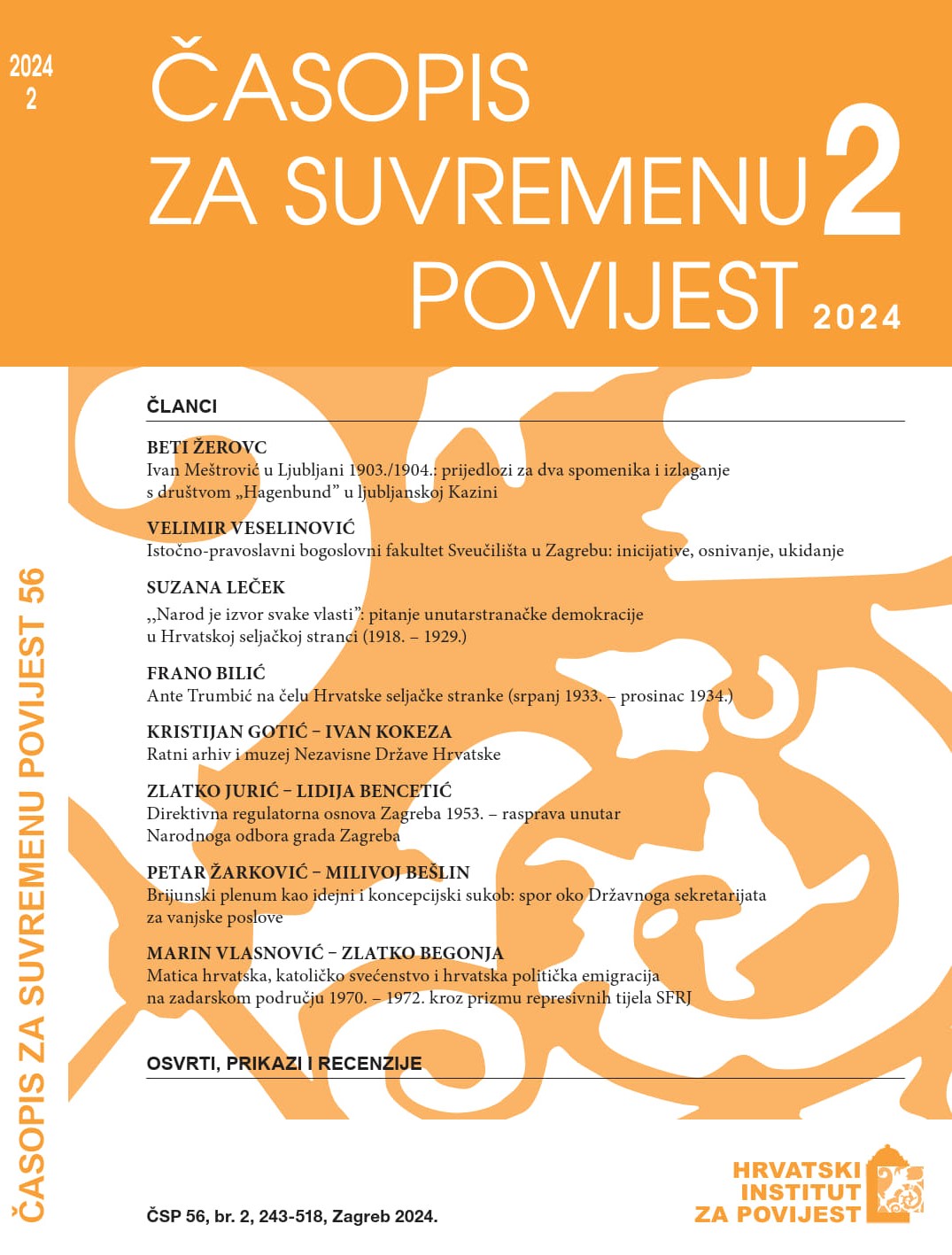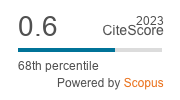Brijunski plenum kao idejni i koncepcijski sukob: spor oko Državnoga sekretarijata za vanjske poslove
DOI:
https://doi.org/10.22586/csp.v56i2.28044Ključne riječi:
Jugoslavija; Brijunski plenum; Aleksandar Ranković; Savez komunista Jugoslavije; Josip Broz Tito; Državni sekretarijat za vanjske poslove; Koča PopovićSažetak
Rad polazi od osnovnih postulata jugoslavenskoga modela socijalizma, konstituiranih nakon razlaza sa Sovjetskim Savezom kao jedinim uzorom u izgradnji revolucionarnoga poretka. U procesu kreiranja samoupravnoga socijalizma u jugoslavenskom vrhu bile su jasno naznačene ideološke kontradikcije i borba dviju orijentacija. Duboka koncepcijska razilaženja nastaju početkom 60-ih godina, a kulminacija je uslijedila na Brijunskom plenumu 1966. godine. Autor problematizira pitanje koncepcijskih razlika u jugoslavenskom rukovodstvu na pitanju uloge Saveza komunista Jugoslavije, čija se promjena očekivala u zacrtanim ciljevima jugoslavenske političke liberalizacije. Primjer sukoba između Državnoga sekretarijata za vanjske poslove i centralnih partijskih organa, oličenih u Aleksandru Rankoviću, poslužio je u radu kao ilustracija različitoga gledanja na ulogu partijske strukture u samoupravnom sistemu. Na taj način sagledao bi se bliže jedan od važnih segmenata spora protiv Rankovića na Brijunskom plenumu i proširio krug zainteresiranih aktera za taj prijelomni događaj. Rad se temelji na prvorazrednoj arhivskoj građi i izvorima koji otkrivaju dubinske uzroke za povijesnu prekretnicu napravljenu u vrhu jugoslavenske države i Partije.
Preuzimanja
Objavljeno
Broj časopisa
Rubrika
Licenca
Autorska prava (c) 2024 autori i časopis

This work is licensed under a KreativniCommons Attribution-NonCommercial Međunarodne licence.
Nositelji autorskih prva su izdavač Hrvatski institut za povijest i autori. Časopis za suvremenu povijest je časopis u otvorenom pristupu. Sadržaj časopisa u cijelosti je besplatno dostupan. Korisnici smiju čitati, preuzimati, kopirati, distribuirati, tiskati, pretraživati ili stavljati poveznice na materijal te mijenjati, preoblikovati i prerađivati materijal ili ga koristiti na druge zakonite načine, sve dok odgovarajuće citiraju izvornik, sukladno Creative Commons licenci CC BY-NC. Radove objavljene u Časopisu za suvremenu povijest dozvoljeno je pohranjivati u institucijske i tematske repozitorije uz osiguravanje poveznica na web stranice časopisa i Hrčka. Časopis autorima ne naplaćuje objavu radova. Uredništvo ne odgovara za navode i gledišta iznesena u pojedinim prilozima.




